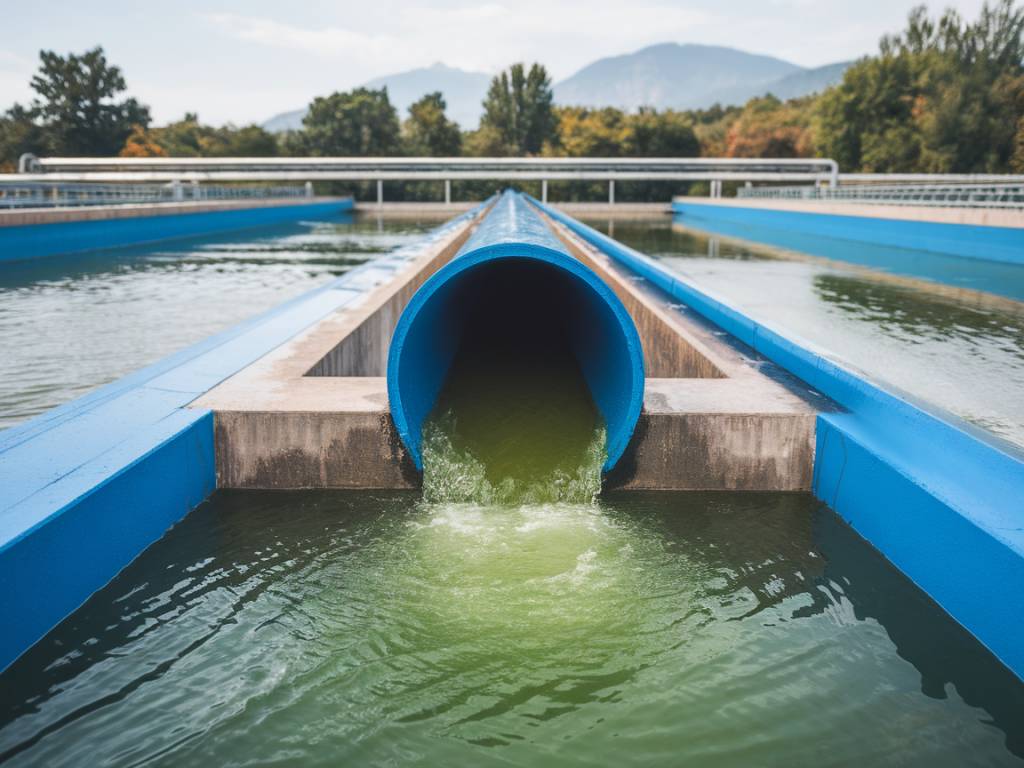In the heart of nature’s intricate dance, water flows as the lifeblood of our planet. Every droplet tells a story, whispered from the clouds to the oceans, from the rivers to our taps. Yet, as stewards of this precious resource, we face the challenge of maintaining its purity while quenching the thirst of a growing population. Herein lies the promise of sustainable water treatment solutions—a harmonious blend of ecology and technology.
The Symphony of Sustainability
Imagine, if you will, a world where water treatment is not a battle against nature but a symphonic collaboration. Sustainable water treatment solutions offer precisely this: systems that treat water in ways that respect the environment, often enhancing rather than depleting our natural resources.
What, then, are the benefits of embracing this ecological partnership? To understand, let us explore the elements that compose this harmonious melody.
A Cleaner Source, A Greener Outcome
At the core of sustainable water treatment is the ability to clean water without leaving a heavy footprint. Traditional water treatment technologies often rely on chemical processes and significant energy inputs, casting a shadow over their own merits. In contrast, sustainable approaches employ methods like biological filtration, harnessing the power of natural microorganisms to purify water.
This method reduces the reliance on harsh chemicals, ensuring that the byproducts of water treatment are not pollutants themselves. Such processes emulate the natural purification that occurs in wetlands and rivers, creating a loop that preserves the integrity of our ecosystems.
Reducing Energy Consumption
Consider for a moment the energy required to power vast treatment facilities. Sustainable water treatment technologies often capitalize on energy efficiency, adopting renewable sources such as solar or wind power to drive their operations. By doing so, they significantly cut down on greenhouse gas emissions, transforming potential polluters into guardians of the air.
Moreover, certain systems, like microbial fuel cells, generate energy even as they treat water. This dual benefit not only conserves resources but also offers economic advantages, making sustainability an appealing choice for communities worldwide.
Utilizing Nature’s Blueprints
Biomimicry, a concept that finds favor in sustainable water management, involves imitating the ingenious designs found in nature. From the spiral structures of nautilus shells to the filtering prowess of mangrove roots, nature provides blueprints that inspire efficient, resilient water treatment processes.
An example of this is the constructed wetland—a man-made ecosystem that treats wastewater biologically. Through the use of specific plants and bacteria, these systems can effectively purify water, offering a low-energy, low-chemical alternative that simultaneously enhances local biodiversity.
Community and Economic Benefits
Sustainable water treatment solutions are not only environmentally conscious but also socially equitable. By offering scalable solutions that can be implemented in both urban and rural settings, they ensure access to clean water for all, bridging socio-economic divides.
In many areas, these solutions provide job opportunities in the green technology sector, supporting local economies. The installation and maintenance of systems like rainwater harvesting and greywater recycling units can stimulate community engagement and education, nurturing a culture of conservation.
Facing the Future
In a world where water scarcity looms large, sustainable water treatment offers a beacon of hope. These solutions enhance water security by making the most of existing supplies and reducing wastage. By investing in recycling and rainwater harvesting technologies, communities can create reserves that safeguard against drought and other challenges.
Furthermore, the reduced environmental impact associated with sustainable practices fosters resilience in ecosystems, helping them withstand the pressures of climate change and over-exploitation.
An Ongoing Journey
The journey towards sustainable water management is not a destination but an ever-evolving pathway. As we stride alongside rivers of innovation, each step we take brings us closer to a future where humanity and nature coexist in a balanced dance.
The stories we water shall tell are yet to unfold, but with sustainable water treatment as our compass, we are on the right course. So, as we cast our nets into this sea of potential, let us do so with an appreciation for the subtle symphony that sustainable solutions bring, enriching our planet one drop at a time.

